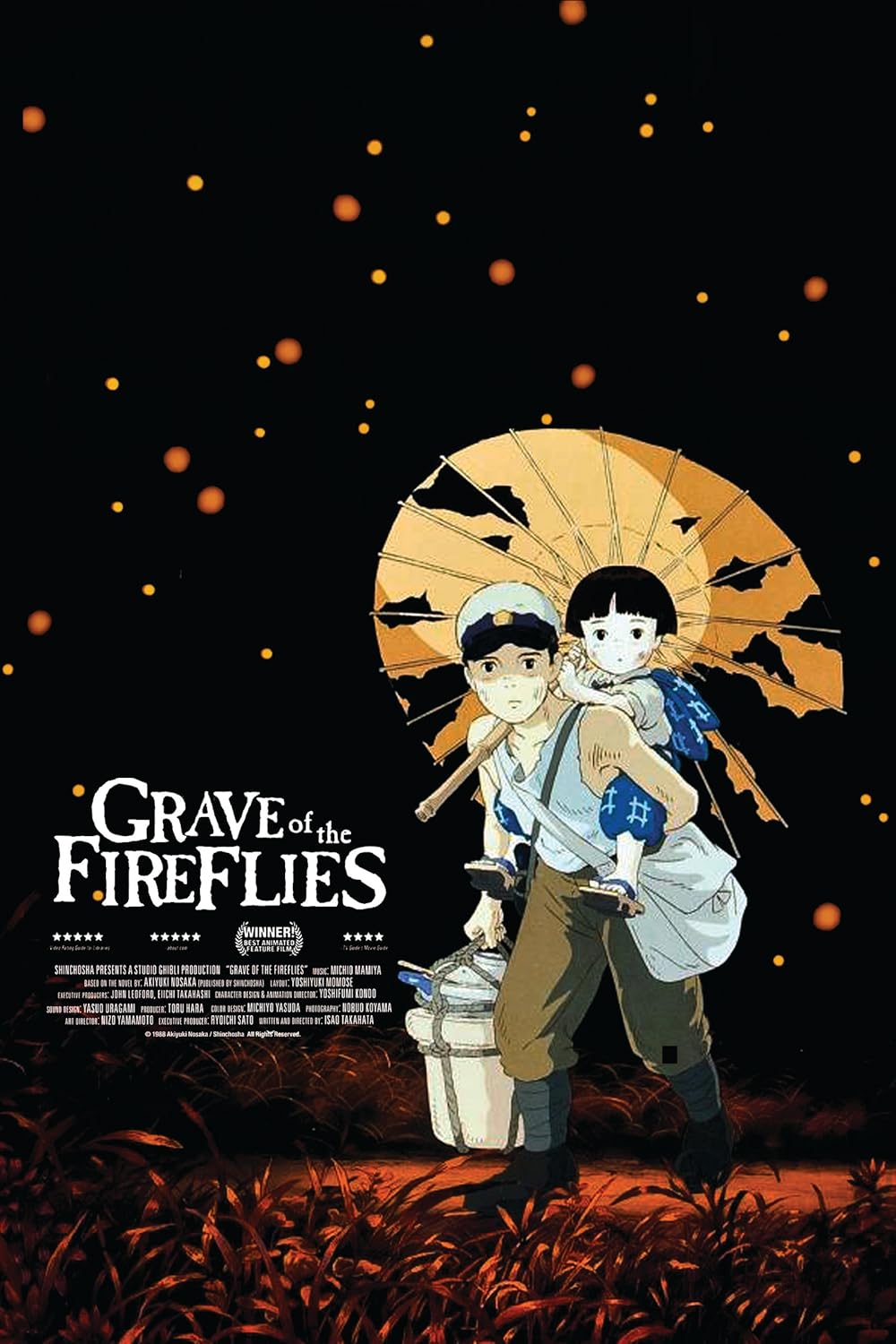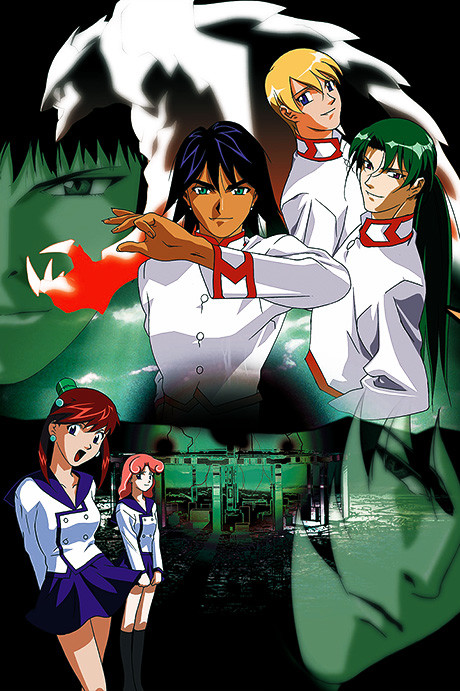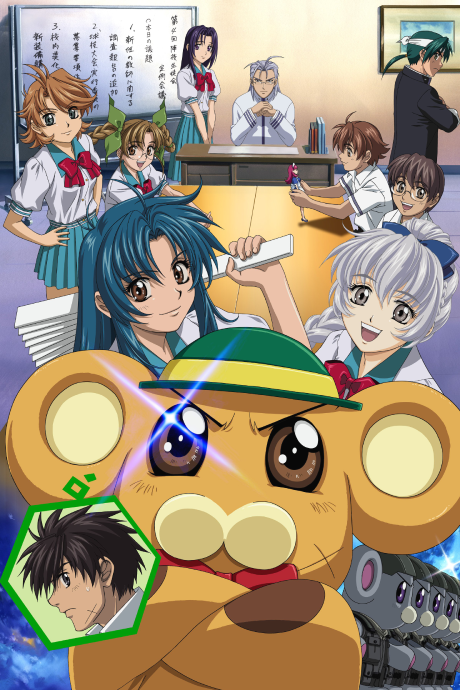All gifs in order
Grave of the Fireflies (1988) Presumed
Akira (1988)
Crayon Shin-chan: Action Mask vs Leotard Devil (1993)
Munto (2005) Direction, and AD only
Full Metal Panic!: The Second Raid (2005)
K-On! (2009)
Nichijou (2011) Presumed
K-On! The Movie (2011)
Hyouka (2012) Presumed
Tamako Market (2013)
Love, Chunibyo, & Other Delusions!: Heart Throb (2014) Presumed
Beyond the Boundary: I’ll Be Here - Future (2015) Presumed
Sound! Euphonium (2015) Direction, and storyboards only, animation by Hiroshi Karata
A Silent Voice (2016)
Violet Evergarden (2018)
Liz & The Blue Bird (2018) PresumedHappy Belated Birthday to Yoshiji Kigami Born December 28th, 1957, he would have been 66 now. The last spotlight of the year. I wanted to go out on a bang, and unfortunately this will be the saddest one. Yoshiji Kigami’s legacy is easily the most venerable and successful in Japanese animation history. He is the man that the greatest animator ever Toshiyuki Inoue looked up to in his formative years, he was the one of the only lone Shin-Ei animators that made his way to Akira, and of course fostering an entire generation of young talent at Kyoto Animation where he spent the rest of his life. So much talent came from KyoAni with the likes of Naoko Yamada, Tatsuya Ishihara, Shoko Ikeda, Taichi Ishidate, Tatsuya Satou, Yukiko Horiguchi, Shinpei Sawa, Yasuhiro Takemoto, Futoshi Nishiya, and so many more. His life and work has been praised by dozens across the industry, with even Hiroyuki Okiura of Production I.G. stating “If you want to know what type of animators there are in Kyoto(Animation), look at the back of Yoshiji Kigami”. Kigami’s animation can only be described as ever changing, as his adaptation to any project is seemingly very apparent, making him super contemporary to whatever era you will see his work in. His early days had him going for a foe realist approach, with a fairly conservative frame count, but able to make a lot with simple motion, and expression. Later on once he joined KyoAni, he would juggle soft and highly detailed character acting, up against expansive and fast paced battles that heavily emphasized the scale of action in shot composition over anything. His effects works were exceptional and beautiful, being very good at animating explosions, fire, and water. The same applies to his boards which were awe-inspiring, taking on the animation heavy episodes of KyoAni. Once a mentor to the doors of a studio that put quality and time before anything, Kigami’s charisma, fastidiousness, and ability to teach, places him as of one of the most caring, friendly, and gracious animators of all time.
Kigami became interested in animation at a young age after being interested in Walt Disney, and Tezuka Productions and having a fond interest of Batman and Spider-Man comic books. Much later he applied for Tokyo Designer Gakuin, a well known vocational school where a lot of talented animators graduated from there around the 70s including Ghibli’s very own Atsuko Tanaka. Kigami did not graduate from there, instead dropped out after seeing an advertisement for Shin Ei Animation. Two of his classmates followed suit including legendary Shin Ei director and animator Masami Otsuka, and animator Mitsuru Nasukawa.
After just a year at Shin-Ei Kigami already rose to the position of a key animator getting his first work on Kaibutsu Kun. His identified work came on the likes of Space Adventure Cobra nothing too special at this point, but Kigami was already a certified early realist of his era thanks to diligent training by Toshio Takeuchi. This was Kigami’s first exposure to working alongside the burgeoning realist school of animators like Koji Morimoto, and Atsuko Fukushima. He would also become aware of the TMS and Madhouse outsourcing divisions of animators like Shinji Otsuka (TMS) and Manabu Ohashi (Madhouse). This was around the time while still working with Shin Ei Kigami founded his own subcontracting company Animaru Ya.
After working outsourced on several Doraemon movies for a few years, Kigami landed a character designer, animation director, and mechanical design gig all on the 80s relic Choujin Locke released in 1984.


Slick, immortal, and badass Choujin Locke was Kigami’s massive breakout. Much like another animator over at Madhouse, Yasuomi Umetsu, Kigami’s rise in the 80s was equally as meteoric. It is crazy that he was getting to do all of these roles so early on in his career, and he was just getting started. Directed by Hiroshi Fukutomi, a Shin Ei director that Kigami frequently worked with, he saw the talent and investment of Kigami and was doing quite a bit to show off his skills on the screen. First let’s show the character designs.



Pretty derivative for the time, although given Shin Ei’s more prominent use of colors given their work on kid’s animation, they tend to pop out a little more than other contemporary designs at the time.While the animation in this film isn’t as flashy as say the animation in Genma Taisen there is a considerable level of finesse and refinement in the effects, and background animation that makes it stand out. There is an over abundance of rotational shots in this film, with Kigami and company frequently engaging in 3D camera space, pairing with of the era Kanada effects and ‘lava lamp’ explosions. Perhaps the most famous example of this lies in Kigami’s own scene.

All Kigami
A scene with the characters blasting through multiple guards, Kigami was nutty with this kind of animation around the time. Though this is just presumed to be a layout, this is the kind of work that got recognition from the others.Kigami for the next several years, worked on a number of projects. On Macross: Do You Remember Love? Kigami started to get more ambitious with the speed of his animation working under Ichiro Itano who was prioritizing explosions, and effects over anything. Kigami afterwords got even more outsourcing jobs, storyboards on Galactic Patrol Lensmen, layouts on Sangokushi, and character designs on Kamen Senshi Lavithunder.
In 1988, Kigami got the honor of working on two big movies of that year. First on one of the two Ghibli films released that year Grave of the Fireflies his first and only work for them

Under direction of Isao Takahata this sad and depressing film about WWII Japan is one of the few less fantastical films in his filmography. Kigami had one lone scene in the movie, that is presumed to be him.
Kigami 1:43-2:03 full scene
If you have seen the movie you will know how sad this scene is in retrospect.The second film was Akira

So, in the grand scheme of things, despite the countless array of realist animators that this film assembled, Kigami in the long run was not that significant of an addition comparatively to everyone else, although he merely stands out due to legacy and obvious influence on Inoue, Okiura, and many other animators on the film. Kigami’s “only” scene had some minor corrections by AD Takashi Nakamura, and he is able to place more wacky and slapsticky character acting. I like how the guy with the bomber jacket kind of resembles how Kigami looked irl around the time.The next few years had Kigami almost exclusively working on Shin Ei films. This is a bit of a lull period in Kigami’s career, with him doing pretty simple scenes on these kid’s movies. In 1990, Kigami briefly retired from the industry to take care of his mother. The following year at the request of company founder and former Shin Ei background art director Hideaki Hatta he joined Kyoto Animation. Founded in 1985 with Hatta’s wife Yoko Hatta, this new outsourcing studio was in desperate need of talent, and Hatta saw that Kigami would be the mentor to the new generation of animators for the foreseeable future. With a great schedule, and value over quality only good things were to come.
Kigami’s first official work for KyoAni, while still technically a factor in Shin Ei was the two studio’s joint collaboration on his directorial debut Cursed Dress: One Piece

This creepy and psychological OVA based off of an original idea by mangaka Shungicu Uchida, is probably one of the only out of the ordinary things for Kigami. Some of the horrific imagery, and nervous breakdown of effects animation all feel like predecessors to Satoshi Kon’s work albeit drawing less from the idea of dreams.

Full short
On the next handful of Crayon Shin-Chan films Kigami got more, and more ambitious with his his fight scenes, as Kyoto Animation’s subcontracting job was mainly placed on action scenes. On Action Kamen vs The Leotard Devil, Kigami along with future Bones affiliated animator Hiroyuki Nishimura were able to craft a nice and lightly psychedelic sword fight. Kigami’s scene on Unkokusai’s Ambition was also equally impressive, having him excel at crowd shots and animating in longer stretches. These films were also important as this was around the time Tatsuya Ishihara and Shoko Ikeda started doing in-betweening and KA, two future legends at KyoAni.
One of the significant standouts in the KyoAni 90s outsourcing era, was their work on Generator Gawl in 98

The KyoAni division excelled at action here, with the studio primarily focusing on Episode 7, and 11. Kigami was in charge of AD, storyboards, Episode Direction, and was lead key animator on the episodes and its pretty easy to see why. Episode 7 is filled to the brim with character acting, and Kigami himself was in charge of the lone corridor chase scene. With background animation harkening back to his days on Choujin Locke Kigami was still detailed and fluid, although somewhat archaic as other younger animators like Hiroyuki Imaishi and Yutaka Nakamura were going for more impressively timed and effects heavy scenes, Kigami knew he had to step it up on Episode 11.
Full Episode
Just about 2-3 minutes of KA, nearly every bit of action is Kigami’s KA. His smoke effects nominally improve, and begins to show elements of his later action boards utilizing slow motion, and dynamic perspective shots with two characters coming towards each other, and following it up with landscape shots of the resultant destruction. This is where Kigami started to utilize scale to great effect. Though this was a serious feat for any animator, Kigami going forward could not do these scenes alone. He was already in his early 40s, and would start to have his disciples carry the action on for him.In the closing chapters of his time spent at Shin Ei, Kigami spent time doing larger scale cinematic scenes, and being placed on crowd shots animating to the best of his ability.
After Kyoto Animation expanded to a corporation in 1999, funding for an original series was in the works, and it finally came true on Kigami’s debut series Munto in 2003, with Yutaka Yamamoto on assistant direction


Created by Kigami with an original script by him as well, Munto follows focuses on a magical world above ours where a source of energy known as Akuto is running out. The Heavens fights a Magical Kingdom above where the human world is completely oblivious. In order to save this world a king named Munto reaches out to a girl named Yumemi who can see the world above. Is she the key to end the conflict? While pretty much lacking in an interesting story, Munto was key in defining the look of KyoAni for the early portion of the studio. This is mainly due to the combined character designs of Kigami and Tomoe Aratani though it’s super unrefined in the episodes.

From the model sheets, I would not be shocked if Aratani and Kigami were trying to match the style of the studio’s and coming Key! adaptations in the coming years.For animation this was a showcase for Noriyuki Kitanohara, Satoshi Kadowaki, Futoshi Nishiya, Yasuhiro Takemoto, and perhaps Kigami’s most important student Taichi Ishidate. Ishidate learned that Kigami valued high quality drawings as one of the essential principles of Kyoto Animation, and maintaining a consistency of quality throughout a production. The action of this first episode is pretty interesting despite Kigami’s heavy corrections. Pretty experimental stuff from 2003 with digital noise filters on smoke and post compositing use of blur (which they would get better at overtime). The best aspect is Kigami’s creative effects direction which feel like artful paintings on a canvas.
After Munto Kigami went to work on Full Metal Panic!: Fumoffu a comedy season lodged between the official season 1 and 2 of the show, and the first show directed by Yasuhiro Takemoto


Perfecting more elements from Munto and Inuyasha, Fumoffu being a comedy series required the studio to pull no stops in that department. Kigami was crucial to bringing that forward, directing Episode 3

Some Kigami animation here and there
Treating the animation in these scenes as seriously if he was doing an action scene, the comedy is just as visceral.Kigami also directed the hilarious rugby episode

Kigami 7:19-7:51
An over the top display, this whole encounter is treated like a great moment in a tournament arc with the commentary played completely straightKigami also did a 50 second classroom fight scene on , being completely absurd
After working briefly on Air, and the second iteration of Munto: Beyond the Walls of Time, Kigami went on to Full Metal Panic! The Second Raid


As a well known action animator, and becoming keen on getting some high octane results out of the rest of the staff Kigami and Ishidate were regularly teaming up. Takemoto placed Kigami on Episode 4, an exciting ambush episode with Kigami and Ishidate taking dual roles on fighting KA. Kigami opens it up with one of his greatest scenes with Yu Fan and Melissa duking it out and transitions smoothly into a mecha fight. A key factor in Kigami’s boards is his fantastic use of conserving cuts, showing everything that needs to be seen and cutting out any fat. I love how Kigami is able to illustrate how fast Yu Fan is moving, but making each of her blows feel like a truck tearing through a building. His disciple Ishidate was keeping pace doing enthralling fighting and mecha scenes. Kigami went to storyboard and direct two more episodes.
Kanon was the start of the Key! era of Kyoto Animation, where for half a decade they would run the Moe aesthetic


Kigami was one of the more frequent animators of the series capable of dishing out a lot of beautiful scenes with these shonen boys, and “portrait eye” girls. The best of example of Kigami pressing in his soft and easygoing presence on the show comes on Ishidate’s directed Episode 12.

Kigami 4:10-4:57, 5:50-6:05, 6:37-7:14
You would not believe how this scene ends. Beautiful and gracious dance animation, Kigami can dish that out and then some.On Yutaka Yama..I mean Tatsuya Ishihara’s Lucky Star Kigami went back into comedy


Kigami 0:25-0:37
A vivid slice of life comedy, with cute girls doing cute things. Kigami served more as an episode director giving life to the sweet and comedic moments of the series.Like this cell phone scene in Episode 7, that he directed

Or the volleyball episode

Clannad only had minor contributions by Kigami, directing and animating a handful of episodes. His biggest contribution was Tomoyo’s scene in Episode 24, which he also directed

Kigami start to 1:58 probably, Ishidate 2:23-2:47, Kigami 3:03-3:08, 3:17-4:15
Superb character drawings and a lot of life drawn into a relatively simple scene.After finishing the closing episodes of the Munto OVA, Kigami spent several years working on multiple shows, like Haruhi Suzumiya, and the first season of KyoAni’s quintessential K-On!


Directed by Naoko Yamada who quickly became a director after about four years of just being a KA, Kigami surprisingly takes a backseat from being a storyboard artist or ED, and instead was solely a key animator.
Kigami comes on the Christmas oriented Episode 7

Kigami 0:41-0:56
The sweetest thing is a young Yui setting up a tree star

All Kigami
KawaiiiiAnd of course he animates the last performance of the band doing their last performance of the season with them finishing off all together with “My Heart is a Stapler”.
Season 2 doesn’t have much of Kigami KA aside from presumably drawing this pillow fight.
Nichijou was a strange outlier in KyoAni’s history, forcing the hand of the animators to draw some of the hardest comedy scenes in animation history


With a zany approach to comedy, which director Ishihara was no stranger to, what did his mentor Kigami bring to the table?
Believe it or not the first episode Kigami directed was the iconic principal vs deer episode

Kigami presumed for the wrestling portion at 1:53-2:08
One of the greatest anime fights of all time, putting Naruto vs Sasuke, Gaara vs Rock Lee, Goku vs Frieza, Jotaro vs Dio, and Yusuke vs Toguro to shame, it is a sakuga scene for the ages, truly peak right here.This episode also contains the nearly if not just as good coin fight

Like wtf is the 3D shot? one of the most ambitious rotational shots ever?
Episode 14 has an intense battle of words with Yuko and Lio, where they insult each other so much they start complimenting

Episode 20 has a funny gag where Yuko stabs herself with a pencil shooting a beam up into the sky destroying the solar system

K-On! The Movie was the second stop for Kigami handling a good portion of character acting scenes

He intersperses all these great little moments throughout the movie to great effect. Yamada seemed to assign him to wider shots where I think he had a better time on the layouts.
Although the close up character shots were sublime









































